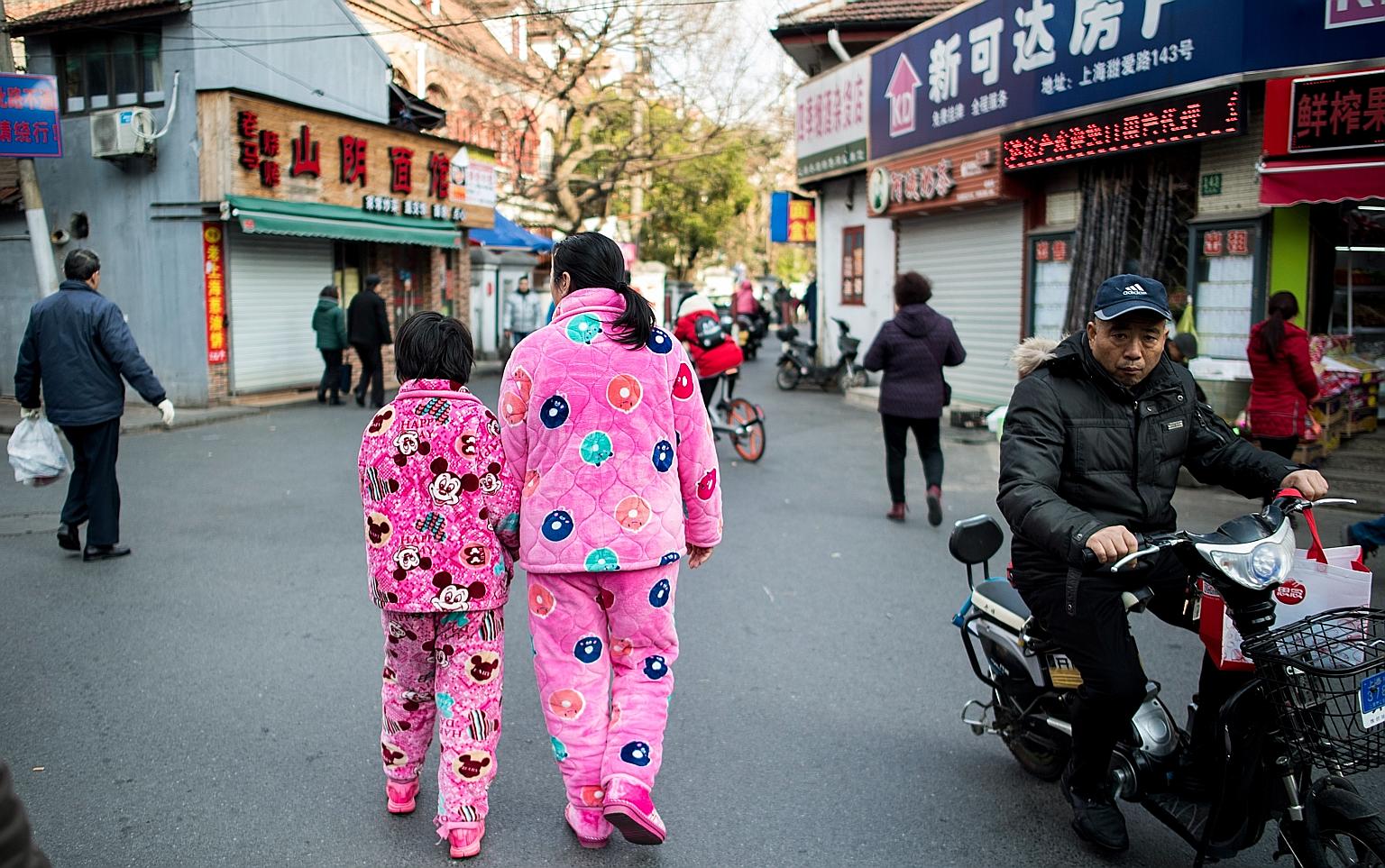Facial recognition used to shame pyjama wearers
Sign up now: Get insights on Asia's fast-moving developments

Wearing pyjamas outdoors is common in China, as seen in this photo of a woman and a girl in a street in Shanghai yesterday. The Chinese authorities have tried to stamp out the practice, but Suzhou city officials sparked outrage online when they used facial recognition software to shame residents who had worn pyjamas in public.
PHOTO: AGENCE FRANCE-PRESSE
BEIJING • When officials in an eastern Chinese city were told to root out "uncivilised behaviour", they were given a powerful tool to carry out their mission: facial recognition software.
Among their top targets? People wearing pyjamas in public.
On Monday, the urban management department of Suzhou, a city of six million people in Anhui province, sparked outrage online when it published photos taken by street cameras of seven residents wearing pyjamas in public along with parts of their names, government identification numbers and the locations where their "uncivilised behaviour" had taken place.
City officials quickly apologised, but not before stirring nationwide ire over the use of a state-of-the-art digital tool to stamp out a harmless and relatively common practice - an unusual note of resistance in a country where the instruments of digital totalitarianism have spread largely unchecked.
On social media, the Suzhou department publicly called out, among others, a Ms Dong, a young woman in a plush pink robe, matching pants and orange pointy flats; and a Mr Niu, who was singled out for donning a black and white chequered full pyjama suit in a mall.
Public pyjama wearing is common in China, particularly among older women who tend towards bold colours and floral or cartoon patterns. It is also a popular sartorial practice in winter in southern China where, unlike in the north, most homes do not have central heating.
The origin of the practice is widely debated, though virtually everybody agrees on one point: Pyjamas are extremely comfortable.
Shanghai, especially, has been an epicentre of pyjama couture. In 2009, the local authorities tried to ban the practice before the World Expo in 2010. Signs reading "Pyjamas don't go out of the door; be a civilised resident for the Expo" were posted in the city while "pyjama policemen" patrolled neighbourhoods.
Still, the pyjamas-in-public tradition persisted.
Ms Hung Huang, a writer in Beijing and proud pyjama-wearing fashion blogger, said the government had no business interfering in the fashion choices of the public.
"In China, when these things happen, it is when very high technology gets into the hands of very low-level bureaucrats, and by low level, I mean low level of intelligence," Ms Hung said.
"The decision was probably made by somebody who has no understanding of international fashion and of how to use technology to benefit the people rather than to just control them," she added. "This should be an alarm for all Chinese tech developers and Chinese government policymakers."
The Suzhou ban on pyjamas in public is not the first time China has sought to crack down on what it deems uncivilised behaviour. The Chinese authorities have imposed fines for spitting in public, and gone after the "Beijing bikini" - men rolling up their shirts and baring their bellies in summer.
After the online uproar on Monday, urban management officials in Suzhou quickly took down the original post and issued an apology.
According to the Global Times, a tabloid controlled by the Chinese Communist Party, the city had been competing for the title of "National Civilised City", a designation granted by the government.
"We sincerely apologise," the Suzhou department said in a statement posted on WeChat. "The way we released the information and the content of the article were not handled properly."
NYTIMES


